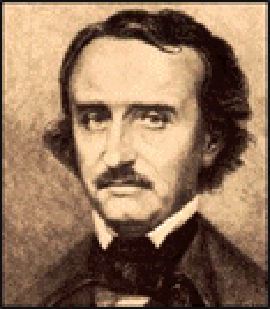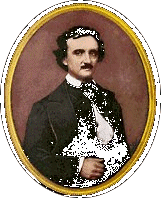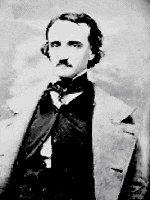
(1809-1849)
The
father of the modern mystery, Edgar Allan Poe, was born
in Boston on January 19, 1809. He was educated in
Virginia and England as a child. It was during his later
years at West Point that he showed a remarkable
propensity for writing prose. As early as the age of 15,
he wrote these words in memory of a female acquaintance,
"The requiem for the loveliest dead that ever died
so young."
Indeed, Poe's first love was poetry, although he was
unable to make a living at it early on, he was able to
publish two small volumes during these early years. Only
after becoming an assistant editor at the Southern
Literary Messenger in Richmond, Virginia, in 1835 did
Poe's literary talents start to blossom.


